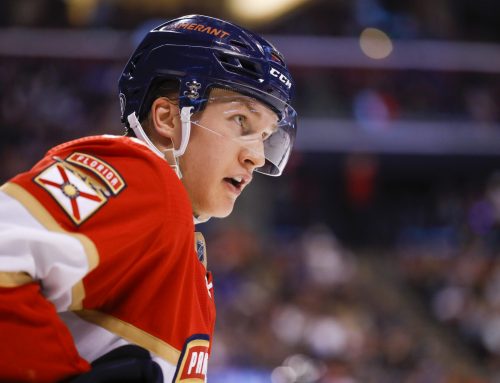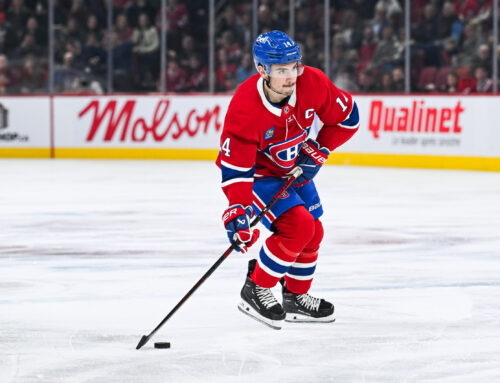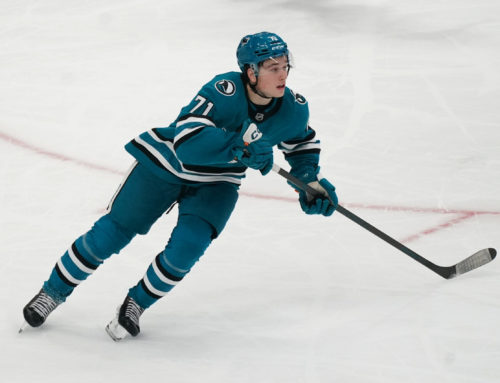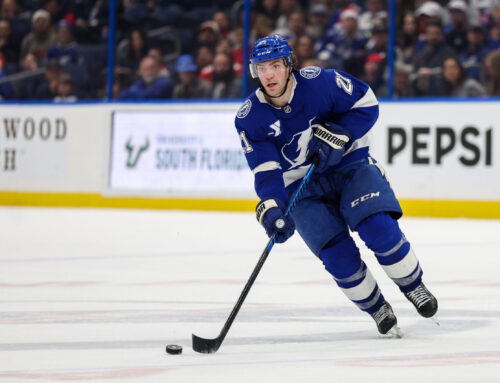The 2019-20 NHL season was one like no other, in the end barely half of all teams playing 70+ games. Even still, I felt it was appropriate to do my annual exercise of checks and balances in the form of reviewing my 15 Fearless Forecasts for 2019-20 to see how my predictions fared. You can read the original column here, and the associated forum thread – where you voted on which predictions you believed would indeed come true – here.
I'll rate my predictions using baseball analogies. A correct prediction will be termed a "Hit," a prediction where I was onto something even though I wasn't quite correct will be deemed a "Foul Tip," a prediction that was simply wrong will be a "Swing and Miss" and a prediction that was completely off base will be a "Strike Out."
As usual, before I get to the actual predictions and results, I'll add my disclaimer that these were termed "Fearless Forecasts" for a reason since they were meant to be plausible but also bolder than more traditional run of the mill predictions. The good news is no matter how many ended up correct, you'll still benefit by reading the analysis, as there are useful lessons learned from every prediction. With that housekeeping behind us, let's see how I fared.
1) Matt Dumba will lead the Wild in scoring
Result – Strike Out (he finished 13th overall and only fourth among Wild d-men)
Lesson(s) Learned – Beware of counting on someone coming back from injury and with other capable options in the same position.
My reasoning behind this was I felt Minnesota wouldn't have a high scoring offense, plus Dumba had put up 41 points in his last 57 games dating back to 2017-18. What I didn't count on was Dumba's remarkably poor season, plus the emergence of Kevin Fiala.
Was I wrong to expect big things from Dumba? He was entering his prime and had done great things. But he also had been injured and Ryan Suter and Jared Spurgeon were still very much in the mix. Yes, Dumba had some luck metrics that signified his season should not have been as bad as it was; however, there's no sugarcoating this one – I was way off.
Is it possible for a d-man to lead a team in scoring in today's NHL? Yes – we need to look no further than Roman Josi and the Preds, or Brent Burns multiple times in recent seasons. But for that to happen the defenseman has to be "the guy," which Dumba was not.
2) Gustav Nyquist will not break the point per every other game mark
Result – Swing and Miss (he finished with 42 points in 70 games)
Lesson(s) Learned – Post-UFA disappointments are a thing, but money leads to ice time which, even if the player doesn't live up to expectations, in turn, leads to not terrible scoring.
Yes, the prediction didn't come true, due to Nyquist emerging with 30 points in his first 45 games, before slumping to just 12 in his next 27 contests, leading me to believe if the season had gone on the prediction would've been closer to coming true. Even still, by him already having banked 42 points, it was impossible to be correct even if he'd gone scoreless over the rest of 2019-20.
But despite this being a Swing and Miss, make no mistake – Nyquist's season still was very bad, with him being one of just six forwards in the entire NHL to average 18:00+ of ice time per game yet not score at better than a 50 point full season pace. So while he wasn't quite as bad as I thought he'd be, he didn't produce even halfway decent given all the ice time he received. And his production waned as the season unfolded even though his ice time rose in each quarter.
What's the takeaway? Players whose stats are abnormally high as they're on the cusp of being a UFA are indeed very often disappointments even versus tempered expectations. But money talks, and leads to ice time; so as a forward you have to be pretty darn awful to not score even a point per every other game the year after you sign a sizeable deal on a team that has top-six slots to fill.
3) Thomas Greiss will win more games than Robin Lehner
Result – Swing and Miss (Greiss won 16, to Lehner's 19)
Lesson(s) Learned – Again, big contracts translate to more playing time/opportunities; players who sign one-year deals aren't surefire bets for success.
My reasoning in making this pick was I figured at worst Griess would be in a goalie share, much like he was with Lehner in 2018-19. But Semyon Varlamov played in three games for every two that Greiss did, despite them having comparable GAA, SV%, win rates and Quality Start percentages. As such, Greiss was not able to play in enough games to get the wins I'd presumed he'd receive. I was right in a sense about Lehner though, as where many felt he'd steal the job in Chicago he ended up being a 1B to Corey Crawford, who was playing so well in the second half the Hawks felt comfortable dealing Lehner, who then became the official back-up in Vegas.
What are the lessons to be learned here? Once again, that money talks, as in guys with bigger contracts will play more, especially if all things are otherwise equal and the other guy is an impending UFA whom the team figures to lose for nothing. The other lesson is don't always assume a player on a one-year "prove it" deal will shine, as for 2019-20 we need to look no further than Kevin LaBanc and Lehner for examples of that.
4) Another rookie will outscore each of Jack Hughes and Kaapo Kakko
Result – Hit (Kakko finished 11th in rookie scoring, Hughes 17th)
Lesson(s) Learned – When it comes to predicting how top picks will fare, focus on NHL readiness, as well as fit and opportunity within their teams
Did I imagine neither would finish in the top ten? No way. But in making this pick I was astute enough to realize not only aren't top picks automatically destined to shine but these two, who were walking into bad situations/fits, were especially vulnerable to disappointing versus lofty expectations.
5) No more than six goalies will appear in 40+ games while having a GAA under 2.50
Result – Hit (Since most teams played about 69 games, I used 33 games instead of 40 as the threshold; and of the 34 netminders who appeared in 34+ games only five had a GAA of 2.50 or less, two of which were goalies who appeared in exactly 33 games)
Lesson(s) Learned – In today's NHL, it's SV% and Wins where the best goalies tend to shine.
This was a case of looking at the numbers and trends. It underscores that even the best netminders these days will give up a good number of goals, due to the higher tempo game being played and the lack of traditional shutdown defensemen. Look no further than the fact that although five were under 2.50, 19 were between 2.50 and 2.80. As such, guys who do give you good GAAs year in and year out are now quite valuable, whereas other goalies distinguish themselves in Wins and SV%. It's also a similar story with Shutouts, where only seven goalies had 4+ (none more than six), and 23 had either two or three. So if your league counts GAA and/or SOs, don't focus on it too much on that/those area(s) unless you're grabbing a surefire stud, as most netminders will have stats that are bunched together.
6) The Red Wings will have four forwards score 65+ points
Result – Strike Out (None scored 65+ points, although Anthony Mantha scored at that rate)
Lesson(s) Learned – Although someone has to score goals even for bad teams, bad teams are bad for a reason and lack of high scorers is one of those reasons
If only Mantha had stayed healthy all season, perhaps this might have led to a different outcome. Then again, that would've, at best, resulted in three Red Wings hitting 65 points, so even then the prediction would've failed.
Although stats from the latter part of the previous season – which is what led me to make this prediction – are worth focusing upon, don't let doing so overcome logic. Detroit was going to be a bad team and, with that, bound to struggle in all facets of the game, including offense. Moreover, when a team is playing poorly, oftentimes the reaction is to try and shift to more of a defensive focus. Either way, although indeed someone has to score on bad teams, they're bad teams for a reason; and if they had several decent scorers, they wouldn't be bad teams.
7) Andrei Svechnikov will at least double his rookie total of 37 points
Result – Hit (Svechnikov scored 61 points in 68 games, for a 73 point full season pace)
Lesson(s) Learned – If someone can impress at age 18 and is poised to get an opportunity to shine as a sophomore, it is not a stretch to expect very good things to happen
Yes, technically I was a point off, but I'm still calling this one a hit. How did I see it coming, and how can we recognize instances where it could happen again? With 18 year-olds it's all about signs of talent, plus getting an opportunity. I knew from Svechnikov scoring 20+ goals while averaging 2+ SOG per game at age 18 that he was the real deal. But as important as that, it was clear the Hurricanes were going to find a bigger role for him, what with no huge money or major producing wingers to stand in his way.
8) Nikita Kucherov, Steven Stamkos and Brayden Point will each see at least a 15% reduction in per-game scoring rate versus last season
Result – Foul Tip (Kucherov and Point saw sizeable drops, but Stamkos' rate increased)
Lesson(s) Learned – In today's NHL, it is far more common for duos to stick together rather than trios, and very good teams that disappoint in the playoffs often will "blow things up" the next season.
What lessons can be taken from this? When a team that so dominated the regular season gets beaten in the playoffs, changes are bound to be afoot, and for Tampa Bay that included breaking up their 2018-19 highly productive top unit. And predictably some of the players suffered.
What I should've realized though, is at least two of them – in this case, Stamkos and Kucherov – would stick together, making it less likely stats for all three would crater. In today's NHL more so than ever lines are fluid, and what you find instead are duos who are glued together. So be careful paying a high price – in trade or draft – for a guy who shines on a line, as he could find himself elsewhere in the blink of an eye. There are rare exceptions like Patrice Bergeron, Brad Marchand and David Pastrnak in Boston; but for the most part, you want to focus on guys who are in duos that are glued together. A good example for 2020-21 is the line of Leon Draisaitl, Ryan Nugent Hopkins, and Kailer Yamamoto. Draisaitl and RNH are likely joined at the hip; however, it might be that Yamamoto finds himself off that line if push comes to shove. Or in Florida, where the duo of Aleksander Barkov and Jonathan Huberdeau will almost assuredly stay together for 2020-21, but there's no lock for the third member of that line, which might end up being a rotating cast of characters.
9) Tyler Seguin will finish in the top ten in NHL scoring
Result – Strike Out (Seguin had his worst season as a Dallas Star and finished tied for 58th in scoring)
Lesson(s) Learned – If a player isn't a caliber of superstar who can do it himself, to be a top scorer he's going to need some help from his linemates.
All the signs were there if you go back and reread my original column. What I didn't count on was the fact that Seguin would have no supporting cast. And that was a bad oversight on my part, as his wingers were either age 34+ (Alex Radulov, Corey Perry, Joe Pavelski) or were already showing signs of rough and tumble play slowing them (Jamie Benn). And as talented as Seguin is, he's not at the level of a Sidney Crosby, Evgeni Malkin, Nathan MacKinnon, Connor McDavid or other superstars who can make magic happen on their own regardless of the caliber of their wingers.
10) Jake Guentzel will lead the league in goals
Result – Foul Tip (Guentzel had 20 goals in 39 games, for a 42 goal full season pace, which would have put him fifth in the league, but he had 12 goals in his last 20 games before getting injured, for a full season pace of 49, which would've led the league)
Lesson(s) Learned – When a superstar clicks with a winger, magic can and will happen
The result says it all. Guentzel was poised for a star-making season, thanks to the superb chemistry that exists between him and Crosby, not to mention Guentzel upping his SOG rate to over three per game and becoming a PP1 fixture. I'd make the prediction again in a heartbeat.
11) Connor McDavid will win the NHL scoring race by at least 20 points
Result – Swing and Miss (McDavid's teammate, Draisaitl won the scoring race, although McDavid missed seven games and their scoring rates were nearly identical)
Lesson(s) Learned – When a team is fortunate enough to have two top caliber players, chances are one won't outscore the other by much, if at all.
In making this prediction, simply put, I vastly underrated how good Leon Draistail was. Had McDavid and him stayed together, they likely would've had similar scoring rates; and now we've seen that once they're split Draisaitl can still shine. This has the makings of Crosby/Malkin 2.0, which should put smiles on the faces of Oilers fans and poolies who own McDavid and Draisaitl.
12) Mika Zibanejad will be among the top six centers in scoring
Result – Hit (Zibs finished sixth despite missing 13 games)
Lesson(s) Learned – There is such a thing as late bloomers, and pay attention to the second half scoring trends and how much a player contributes to his team's offense.
If you go back and reread the original piece, the second half signs indeed were there that Zibs would break out. But didn't I get through saying above – concerning the Detroit predictions – that second-half stats are not always good barometers for success the following season? The key differences are that here I was talking about one player, who just so happened to be a truly top player on his team, and that team was on the rise. Those two factors signalled to me that Zibs was on the cusp of greatness, and sure enough, that's what happened.
13) Marc-Andre Fleury will not win more than 27 games
Result – Hit (he won exactly 27)
Lesson(s) Learned – When trying to determine when an older netminder is set to decline, pay close attention to quality starts, age, and overall career minutes.
Had Fleury merely been older, had worse quality starts year to year, or passed a career minutes played threshold, no one of those factors alone might have forecasted his decline. But with all three coming together at once, it seemed like things were not going to go well for MAF and indeed they didn't.
14) Fewer than 25 players will score 10+ PPGs
Result – Swing and Miss (22 players hit double digits as things stood, but well more than 25 would've likely done so if all teams had played 82 games)
Lesson(s) Learned – PP SOG is not a good barometer for the number of PPGs a player will score
This was a case where I was trying to figure out a way to make a prediction relating to the power play and I stumbled across some stats that seemed to support a hypothesis. Needless to say, that's not the way to land on a correct prediction. Never form a conclusion first, then go looking for evidence to back it up; instead, it should always be the other way around, namely evidence pointing to conclusions.
15) Erik Karlsson will outscore Brent Burns by at least 15 points
Result – Swing and Miss (Burns, despite a down year, outpointed Karlsson by a slight per game margin)
Lesson(s) Learned – It's a lot easier to make predictions where only one player is involved
I give myself credit for correctly predicting that Burns would be a let down for 2019-20. Where this all fell apart, however, is with Karlsson, who played subpar as well. Yes, Karlsson had scored a lot on teams as bad as the 2019-20 Sharks; however, that happened when Karlsson was younger, before he suffered through some recent injuries, and without any one of the caliber of Burns in the mix. I think that having both in the mix is hurting each of them and I would be wary of owning Burns or Karlsson in leagues on a going-forward basis, as even though their poor seasons will cause their value to decline, they're still such big names that they'll likely be drafted too high to be worth taking.
************
So there we have it – all in all a decent hit/near miss rate. It certainly was a step up from my very poor showing for 2018-19. How did you do with your votes? Your top choice was Tyler Seguin being one of the top ten NHL scorers, which was among the worst-faring predictions. But you nailed it with your second choice of at least one rookie outscoring both Jack Hughes and Kaapo Kakko. As for the other predictions that were hit, two finished tied for ninth, one in seventh and two tied for fifth in your voting, so not your best overall. But there's always next season, whenever that happens. Until then, be safe and keep your fingers crossed for a return to normalcy in hockey and life as soon as possible.
Questions for Mailbag column
This week would normally have been a mailbag column, and as it happens I still have room to answer a couple more inquiries. To get questions to me, you can either private message “rizzeedizzee” via the DobberHockey Forums or, instead, send an email to admin@dobbersports.com with “Roos Mailbag” as the subject line.





 EDM
EDM FLA
FLA CHI
CHI ANA
ANA CGY
CGY N.J
N.J
